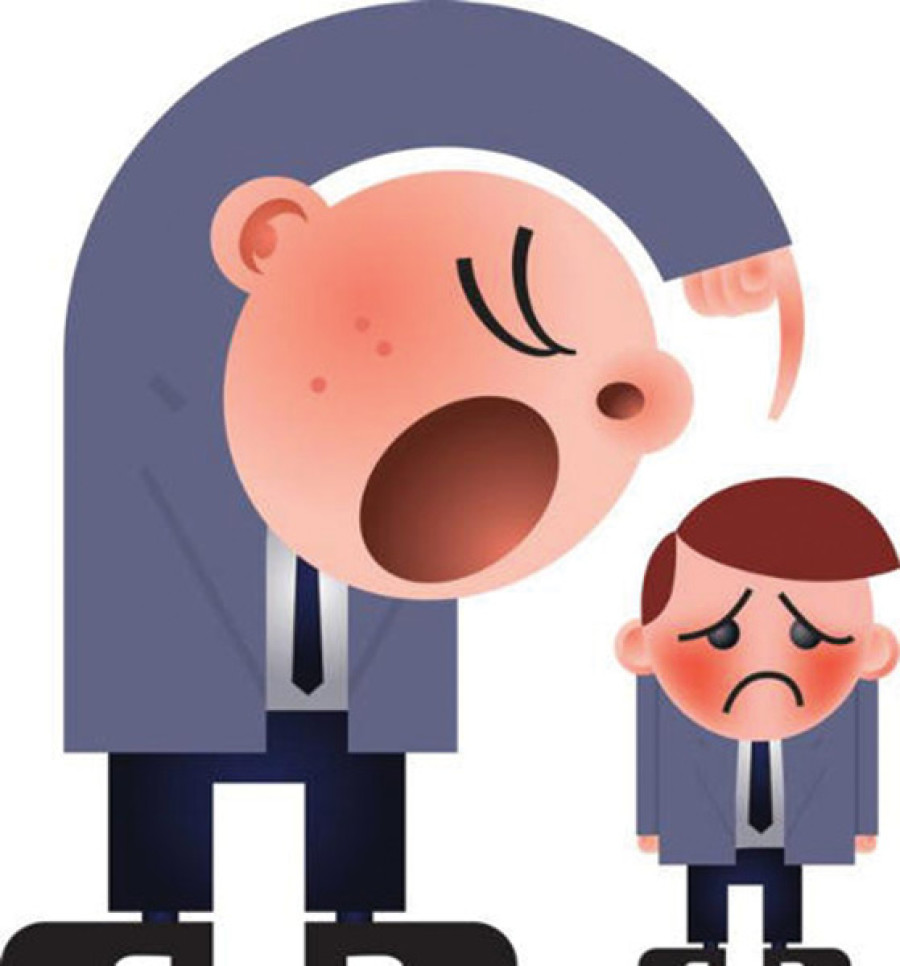Opinion
Hard day at the office
Workplace harassment laws in Nepal mainly focus on sexual harassment in offices: Is that enough?
Giri Bahadur Sunar
A few days ago, one of my friends, who is a woman, told me that her boss was harassing her at the office. Normally, when we hear about workplace harassment, what comes to our minds is sexual harassment. But her case was different. Her female boss had been driving her unfairly hard, keeping her away from office meetings, holding back important information and telling on her to the chief. This was causing her psychological pain. She said she couldn’t complain because her boss and the office head were very close, and she might lose her job if she did so. Therefore, she has chosen to suffer in silence.
Unfairly treated due to identity
I tried to comfort her by telling her about my own experience of workplace harassment. Being a Dalit, I was passed over for promotion despite my qualification and work experience. A less-qualified candidate belonging to the so-called upper caste was promoted by my boss who is of the same caste. In this way, discrimination at the workplace is hindering Dalits from moving ahead in their careers, and workplace harassment is limiting their capabilities. It’s not only women, low-caste people and people with disabilities who are suffering workplace harassment. People who identify themselves as lesbian, gay, bisexual or transgender (LGBT) are given a hard time too. One common form of workplace harassment for the LGBT community is having to hide their sexuality in a heterosexist environment.
During my self-defence training, one of my students, a waitress, said that a high level of tolerance was required in her profession. Her employer expects her to agree to some level of sexual interaction with customers. This situation forces restaurant workers to accept one of two options: tolerate sexual harassment by customers as part of the job, or quit. This is just an example from the restaurant business. There are many girls and women in government and private offices who are being sexually harassed every day but they don’t talk about it for fear of social stigma or losing their jobs.
According to a study conducted by the Forum for Women, Law and Development for the International Labour Organisation, sexual misconduct in the workplace is a serious problem in Nepal with an estimated 48.4 percent of working women facing sexual harassment in their respective workplaces. It believes that lack of effective legal provisions and internal mechanisms is responsible for the rampancy of sexual misconduct in the workplace.
Larger understanding is lacking
To find out the real meaning of workplace harassment, I looked up different definitions in research books and the internet, and discovered that workplace harassment has been loosely categorised into emotional and physical abuse. All these forms of workplace harassment target various groups like women, racial minorities, homosexuals, people with disabilities and immigrants. In essence, workplace harassment needs a pluralistic understanding because it cannot be limited to a coherent and concrete definition.
The government of Nepal has enacted specific legislation addressing sexual harassment at the workplace with the objective of protecting the right of every individual to work in a safe environment. The Sexual Harassment at Workplace Prevention Act 2015 came into effect in February 2015. The act affords protection to employees and workers employed by entities (including contract workers), as also to customers (and persons accompanying such customers) who may visit the workplace to avail of any services. However, this law does not treat all types of workplace harassment which are occurring on the basis of race, ethnicity, gender, sexual orientation, religion, disability, age or genetic information.
For me, workplace does not mean private and government offices only, somebody’s house could be the workplace for a domestic maid; restaurants and hotels could be the workplace for waiters, bar dancers and bar attendants; and public and private buses and airplanes could be the workplace for crew members. Parliament is the workplace for politicians, and an agricultural farm is the workplace for famers. A workplace is an area where an employee is required to represent, carry out, perform or implement any duties, obligations or services required.
The Workplace Harassment Act must not be limited to sexual harassment. It should address multidimensional and pluralistic issues occurring in the workplace. If not, it will cause depression among victims, make them lose their self-confidence, and lead to anxiety, lower productivity, poor performance and psychological pain. Not only that, sometimes a victim can be very aggressive, which may lead to another level of big crime and social disturbance. There should be zero-tolerance policies against violence, and there should be enforcement procedures in place to protect employees. Likewise, there should be worker violence prevention programmes and a proper system where workers can submit reports of violence. In addition to protection for the victim, there should be a good mechanism to control and prevent false accusations made by fraudsters.
Sunar is a sociologist and women empowerment self-defence trainer




 9.6°C Kathmandu
9.6°C Kathmandu










